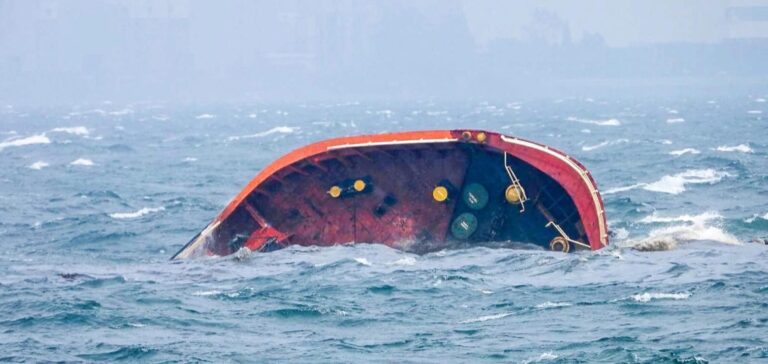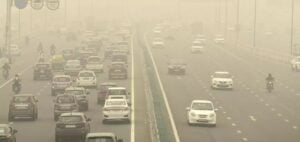The Philippine authorities have announced the completion of recovery operations for the fuel oil spilled by the MT Terranova, a tanker which sank in Manila Bay on July 25.
The vessel was carrying 1.4 million liters of industrial fuel oil when it sank due to high winds and waves caused by Typhoon Gaemi.
The cargo posed a significant risk to the marine environment and to local fishing communities.
A leak would have resulted in the worst oil spill in Philippine history, seriously threatening marine ecosystems and local economies.
Complex recovery operations
The Philippine Coast Guard, under the direction of Commander Michael John Encina, led the fuel recovery operations.
Between August 19 and September 10, 1.38 million liters of fuel oil were siphoned from the submerged vessel.
This complex operation involved the use of several vessels and specialized equipment to extract the mixture of oil and water from the wreck site.
All the recovered waste was taken to a treatment facility near Manila for safe processing.
The rapid intervention of the authorities and the mobilization of the necessary resources brought the situation under control, minimizing the potential economic impact.
Fishing areas around the wreck site were temporarily closed, affecting thousands of local fishermen.
However, these restrictions were put in place as a precautionary measure, to ensure food safety and monitor any residual contamination.
Economic impact and liability issues
The potential impact of this incident on the local economy is significant.
Previous fuel oil spills, notably that of February 2023 off Mindoro, have already demonstrated the serious economic consequences that such accidents can have on the fishing and tourism sectors.
Although this new recovery operation appears to have avoided similar consequences, the economic loss for fishermen and associated sectors remains significant.
The question of responsibility in the management of this incident remains a crucial issue.
The Philippine government has indicated that an investigation may be launched to determine the causes of the sinking of the MT Terranova.
However, no detailed information has yet been provided.
This lack of transparency regarding procedures and the results of previous investigations into similar incidents raises questions about the authorities’ ability to prevent future disasters.
Maritime safety challenges in the Philippines
This event highlights the continuing challenges of maritime safety in the Philippines, a country heavily dependent on shipping for its energy needs. The sinking of the MT Terranova is not an isolated incident.
The risks associated with extreme weather conditions and inadequate vessel maintenance continue to pose challenges for the sector.
The government and maritime authorities are therefore faced with the need to tighten regulations, improve safety protocols and guarantee vessel maintenance to prevent future accidents.
Moreover, rapid response and effective intervention show some improvement in crisis management, but also underline the need for more robust preventive measures.
Proactive risk management is essential for the maritime sector, particularly in exposed areas such as the Philippines, where trade and the fishing industry play a crucial role in the economy.
Towards a reassessment of maritime policies
This incident serves as a reminder of the need for a reassessment of maritime policies in the Philippines.
With an increasing number of maritime incidents in recent years, the Philippine authorities may wish to consider stricter reforms concerning safety standards for vessels and hazardous cargoes.
The introduction of more sophisticated monitoring systems and improved crew training on the risks involved in transporting hazardous materials could also be considered to reduce the risk of future accidents.
In addition, initiatives such as the introduction of more advanced technologies for monitoring and rapid response to oil spills could prove crucial.
The Philippine authorities could also strengthen their cooperation with international organizations to improve maritime risk management and exchange best practices in safety and accident prevention.





















